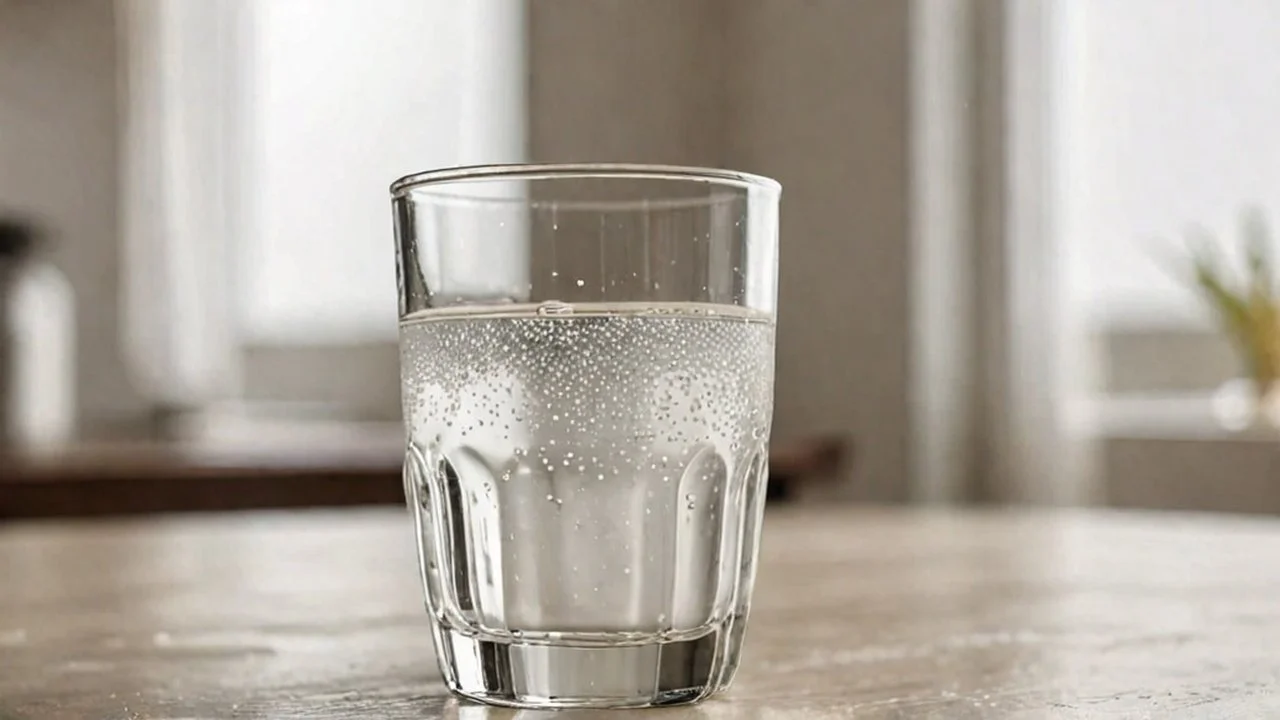The Fresh Advisor
Bonus comprehensive guide on feminine hygiene at the end of the article!
The Fresh and Funny Guide to Feminine Hygiene: Causes, Remedies, and Trending Topics
When it comes to feminine hygiene, things can get a little... well, personal. But hey, who said talking about hygiene can’t be light and humorous? After all, it’s just bodies being bodies! Let's dive into the causes, the seriousness (in some cases), and natural remedies for feminine hygiene issues, topped off with some trendy terms and viral keywords. Grab your tea (or cranberry juice), and let’s get fresh!
Why Feminine Hygiene?
Feminine hygiene is all about maintaining the cleanliness, health, and comfort of the female genital area. It’s more than just smelling nice; it’s about preventing infections, discomfort, and irritation. Let’s face it, nobody wants to feel like they’re walking with a mini bonfire between their legs. So, staying fresh is key!
Common Causes of Feminine Hygiene Problems
There are several things that can throw off a woman’s natural balance (and not just emotionally):
pH Imbalance. Wipes
The vagina is like a high-maintenance best friend—it has a specific pH balance, typically between 3.8 to 4.5. Too acidic? You’re fine. Too alkaline? You’re inviting unwanted guests like bacteria.Hormonal Changes
Pregnancy, periods, menopause, or that second scoop of ice cream (ok, maybe not the ice cream) can mess with your hormones. Fluctuations can lead to things like increased discharge, odor, or dryness.Sweating
Whether it’s a hot day, an intense workout, or just genetics, sweat can collect and create odor or discomfort. Think of it as your body’s not-so-subtle hint that it’s hot down there!
Tight Clothing
Yoga pants are comfy, sure, but they can trap moisture and limit airflow—turning things into a sauna. The result? Yeast infections, irritation, and sweatiness. Best cotton Underwear.Improper Wiping or Washing
We’re all adults here, but wiping the wrong way (back to front) or using harsh soaps can throw things out of balance. Think gentle—like how you’d handle a delicate flower, not a car wash.
How Serious Are Feminine Hygiene Issues?
Not all issues are created equal. Some are no biggie (though still annoying), while others may need medical attention.
Minor Irritations
These can include itchiness, light odors, or small changes in discharge. It’s often caused by things like soap sensitivity or sweating. They’re temporary but still annoying—kind of like when your favorite show is delayed by commercials.Infections
Infections like bacterial vaginosis (BV), yeast infections, or urinary tract infections (UTIs) are more serious. Symptoms can include unusual discharge, fishy odors, and burning during urination. See a healthcare provider if this happens because natural remedies only go so far before you need the pros.
Natural Remedies for Feminine Hygiene
Thankfully, nature has a few tricks up her sleeve. Here are some home remedies for maintaining or restoring balance.
Apple Cider Vinegar (ACV) Baths
ACV is the Swiss army knife of home remedies. Add a cup of ACV to your bathwater to help restore the natural pH balance. Just don’t drink the bathwater—gross. Apple cider Capsules. Apple CiderCoconut Oil
It’s anti-fungal, antibacterial, and smells like a tropical getaway. Use it as a natural moisturizer for dryness or minor irritation. Best Coconut Oil.Probiotics
Yogurt isn’t just for breakfast! Eating probiotic-rich foods like yogurt can help boost good bacteria in your body, and some women even apply it topically (consult a doctor first).Tea Tree Oil
Known for its antimicrobial properties, tea tree oil can help tackle odor. But be careful—it’s potent. Always dilute with a carrier oil before applying. Best Tea Tree Oil.Cranberry Juice
Besides being tart and tasty, cranberry juice is a known fighter against UTIs. It helps prevent bacteria from sticking to your urinary tract.Wear Breathable Fabrics
Opt for cotton underwear, especially on hot days. Cotton lets things breathe, and who doesn’t like a little fresh air?
Final Thoughts: Let’s Keep It Fresh
Feminine hygiene doesn’t need to be a hush-hush topic—it’s just self-care with a little extra attention to your southern hemisphere. A healthy routine, breathable fabrics, and natural remedies can go a long way in keeping things feeling fresh and balanced. And if things feel off, don’t hesitate to consult a healthcare professional. There’s no shame in getting a little help when you need it!
So, take a deep breath and know that maintaining your feminine hygiene is just another part of loving your body—quirks, odors, and all!There you have it—informative, light, and a little laugh along the way. Stay fresh, ladies!
BONUS: COMPREHENSIVE GUIDE ON HOW YOU CAN ACHIEVE GOOD FEMININE HYGIENE!!
Achieving and Maintaining Great Feminine Hygiene: A Comprehensive Guide
Feminine hygiene is a vital aspect of women's health, affecting both physical well-being and confidence. Maintaining good hygiene involves more than just cleanliness; it also requires proper care of sensitive areas to prevent infections, discomfort, and promote overall health. In this article, we’ll explore essential tips, practices, and habits to help women achieve optimal feminine hygiene.
1. Daily Cleansing
Regular cleansing is the foundation of good hygiene. However, the vaginal area is delicate, and over-cleaning or using harsh products can disturb its natural balance.
Use Mild, Unscented Soaps: The vagina has a natural pH level of 3.8 to 4.5, which helps maintain the balance of healthy bacteria and yeast. Using harsh soaps or scented products can disrupt this balance and lead to infections like bacterial vaginosis or yeast infections. It’s recommended to use mild, fragrance-free soaps or intimate washes specifically designed for the vulva (the external area of the genitalia).
Clean the Vulva, Not the Vagina: The vagina is self-cleaning, producing natural secretions that help maintain its cleanliness and balance. Washing inside the vagina can disturb its pH and lead to infections. Clean only the outer areas gently with water or mild soap.
Pat Dry: After cleansing, it’s important to pat the area dry with a clean towel. Avoid rubbing the skin to prevent irritation. Keeping the area dry helps reduce moisture, which can encourage the growth of bacteria or yeast.
2. Choose the Right Underwear
What you wear can impact your feminine hygiene.
Opt for Breathable Fabrics: Cotton is one of the best materials for underwear as it’s breathable and helps wick moisture away from the skin. Synthetic materials like nylon and polyester can trap moisture and heat, which may lead to bacterial growth and discomfort.
Change Underwear Daily: Wearing fresh, clean underwear daily is essential to maintaining hygiene, as sweat and vaginal discharge can accumulate throughout the day. If you engage in physical activities or experience heavy discharge, consider changing underwear more frequently.
Avoid Tight Clothing: Wearing tight-fitting clothes, especially for extended periods, can increase moisture and heat in the vaginal area, creating a breeding ground for infections. Opt for looser clothing or breathable fabrics when possible.
3. Menstrual Hygiene
During menstruation, proper hygiene practices are especially important to prevent infections and maintain comfort.
Change Sanitary Products Regularly: Whether you use pads, tampons, or menstrual cups, changing them frequently is crucial. Pads and tampons should be changed every 4-6 hours to prevent bacterial growth and reduce the risk of toxic shock syndrome (TSS), a rare but life-threatening infection. Menstrual cups should be cleaned and emptied every 6-12 hours, depending on the flow and product instructions.
Use Organic or Hypoallergenic Products: Many women opt for organic cotton tampons or pads to avoid exposure to synthetic materials, dyes, and chemicals that may cause irritation. Hypoallergenic options are ideal for those with sensitive skin.
Wash Regularly During Menstruation: During your period, it’s important to wash the vulva regularly to remove any menstrual blood and maintain freshness. Use warm water and mild soap, and avoid using perfumed wipes or sprays, which can irritate the skin.
4. Proper Wiping Technique
A simple yet vital hygiene practice is wiping properly after using the bathroom.
Wipe Front to Back: Always wipe from front to back to prevent the transfer of bacteria from the anus to the vaginal area. Best Wipes. This helps reduce the risk of urinary tract infections (UTIs) and other infections.
Use Soft, Unscented Toilet Paper: Rough or scented toilet paper can cause irritation. Opt for soft, fragrance-free toilet paper or gentle wipes, especially if you have sensitive skin.
5. Stay Hydrated and Maintain a Healthy Diet
Feminine hygiene is also influenced by overall health. Drinking plenty of water and eating a balanced diet can help in various ways:
Hydration Affects Vaginal Health: Staying hydrated helps regulate body fluids, including vaginal secretions. Proper hydration can also support the body’s natural ability to flush out toxins, reducing the risk of infections.
Eat Probiotic-Rich Foods: Yogurt, kefir, and other probiotic-rich foods contain beneficial bacteria that can support vaginal health by balancing the flora. A balanced vaginal microbiome is essential in preventing infections such as yeast infections. Vaginal Probiotic.
Avoid Excessive Sugar: A diet high in sugar can contribute to an imbalance in the vaginal flora, increasing the likelihood of yeast infections. Moderating sugar intake can help maintain a healthy vaginal environment.
6. Practice Safe Sex and Regular Medical Check-Ups
Sexual health is closely linked to feminine hygiene.
Use Protection: Practicing safe sex by using condoms or dental dams can help protect against sexually transmitted infections (STIs), which can affect vaginal health.
Urinate After Intercourse: Urinating after sexual intercourse can help flush out any bacteria that may have entered the urinary tract, reducing the risk of urinary tract infections.
Regular Gynecological Exams: It’s essential to have regular check-ups with a gynecologist to monitor your reproductive health. These visits can help detect any infections, abnormalities, or other issues early on. Pap smears and other tests are also important for preventing cervical cancer and maintaining vaginal health.
7. Avoid Douching and Harsh Products
Many women believe that douching (washing the inside of the vagina with water or other solutions) is necessary for hygiene, but this is a misconception.
The Vagina Cleans Itself: As mentioned earlier, the vagina has a natural self-cleaning mechanism. Douching can upset the balance of bacteria in the vagina and increase the risk of infections.
Avoid Scented Products: Scented sprays, powders, or washes are unnecessary and can irritate the sensitive skin around the vagina. It’s best to stick to unscented, gentle products.
8. Manage Stress and Get Adequate Sleep
Hormonal changes brought on by stress or lack of sleep can impact vaginal health.
Reduce Stress: High stress levels can lead to hormonal imbalances, which in turn can cause issues like irregular periods or yeast infections. Practicing stress-relief techniques, such as meditation, exercise, or yoga, can help in maintaining a healthy balance.
Prioritize Sleep: Sleep is crucial for overall health and the immune system, which also plays a role in preventing infections. Aim for at least 7-8 hours of sleep per night to support your body’s natural defenses.
Conclusion
Achieving and maintaining great feminine hygiene involves a combination of regular care, healthy habits, and lifestyle choices. By following these simple yet effective tips, women can prevent infections, maintain comfort, and feel confident in their everyday lives. Remember, every woman’s body is different, so it's essential to listen to your body and adjust your routine as needed. For any concerns or persistent issues, always consult with a healthcare provider or gynecologist for personalized advice.
Purchases made on this site will result in commissions.
#VaginalDetox (yup, it’s a thing!)
#EcoFriendlyPads (sustainability is sexy!)
#ProbioticPanties (coming to a store near you)
#PeriodUnderwear (goodbye tampons?)
#PHBalancedProducts (everyone’s talking pH!)
Feminine hygiene products
pH balance for women
Natural feminine hygiene tips
Yeast infection remedies
Odor control for women



